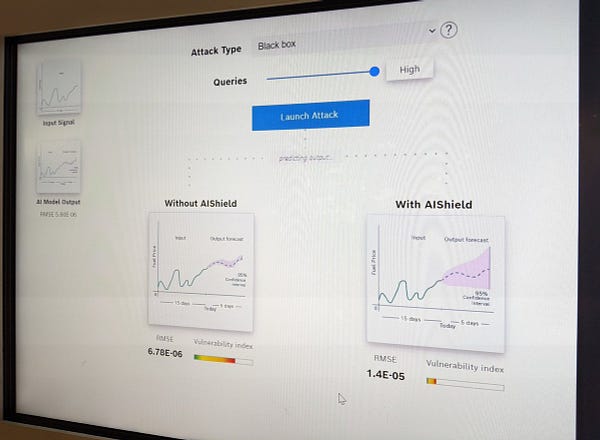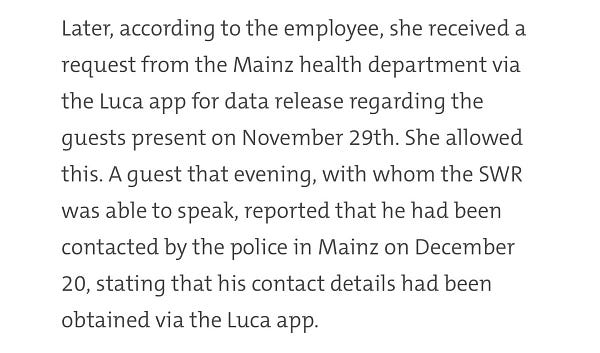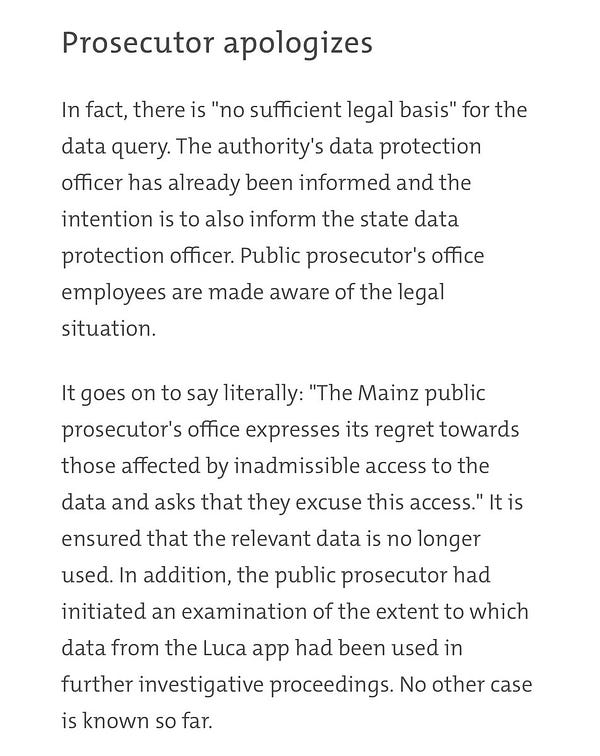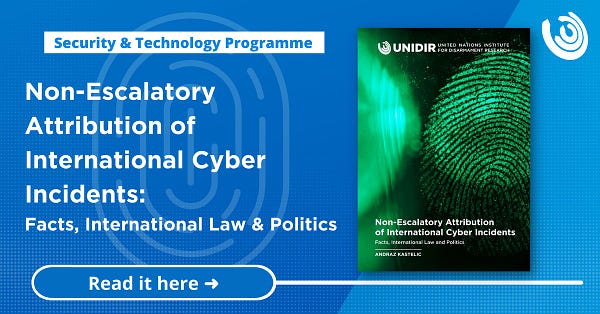China harvests masses of data on Western targets, documents show | U.S. catches Kremlin insider who may have secrets of 2016 hack | + all the other major stories you may have missed over the break
Follow us on Twitter. The Daily Cyber Digest focuses on the topics we work on, including cyber, critical technologies & strategic issues like foreign interference.
Welcome to the first Cyber Digest of 2022. We’ve included all the major stories you may have missed over the break. Happy New Year from all of us at ASPI ICPC!
China is turning a major part of its internal Internet-data surveillance network outward, mining Western social media, including Facebook and Twitter, to equip its government agencies, military and police with information on foreign targets, according to a Washington Post review of hundreds of Chinese bidding documents, contracts and company filings. The Washington Post
IT executive Vladislav Klyushin’s journey into U.S. custody is a blow to the Kremlin, say people familiar with a Russian intelligence assessment of what he may have to offer. Bloomberg
Poland's most powerful politician has acknowledged that the country bought advanced spyware from the Israeli surveillance software maker NSO Group, but denied that it was being used to target his political opponents. Associated Press
ASPI ICPC


January 7th



World
December 28th
Why Are Authoritarians Framing International Approaches to Disinformation?
Lawfare
Jacob N. Shapiro, Alicia Wanless
Time is growing short to craft a vision for safeguarding the information environment that enables democracy and to prepare concrete proposals that will counter the authoritarian vision of central control.
Australia
January 5th
Australia, Japan sign ‘landmark’ defence pact
The Australian Financial Review
Australia and Japan will deepen security ties across the board including in intelligence and cyber security, to counter the full spectrum of China’s coercion, building on a new defence pact which officials say will send a message of deterrence to an aggressive Beijing.
January 4th
Senate committee wants foreign interference social media reporting rules by next Australian election
ZDNet
Campbell Kwan
A Senate Select Committee received testimony prior to the new year that both government and social media platforms are unsure of how to go about reporting foreign interference on social media platforms.
December 31st
Old Parliament House fire protesters linked to anti-vaccine and conspiracy groups
The Guardian
Michael McGowan
Leaders of a group of protesters who set fire to the facade of Old Parliament House in Canberra are closely linked to a complex network of anti-vaccination and conspiracy groups which have been accused of spreading misinformation in Indigenous communities during the Covid-19 pandemic.
December 22nd
Foreign spies and hackers set to target Australia’s local council services, says new report
The Courier Mail
Jennifer Dudley-Nicholson
Foreign spies and hackers could cause crippling disruptions in Australia, security experts warn, as the criminals’ newest target is revealed. Here’s how.
China
January 9th
Two Chinese Startups Tried to Catch Up to Makers of Advanced Computer Chips—and Failed
The Wall Street Journal
Yoko Kubota
Companies that were launched to build semiconductors in China, including startups HSMC and QXIC, have failed despite hundreds of millions of dollars in investment and government support. Officials are sorting through the wreckage to see what went wrong.
January 7th
Personal Brands for Party Agendas
China Media Project
Kevin Schoenmakers
In a bid to advance Chinese government narratives more credibly overseas, state media have encouraged more “flexible and personalized” use of the individual accounts of their employees on platforms such as Twitter and Facebook. When are social media accounts personal? And when are they being disingenuous about the state agendas they serve?


January 6th
China cyberspace regulator says it will build solid national cyber security barrier
Reuters
China will speed up establishment of a comprehensive internet governance system and build a solid national cyber security barrier, the cyberspace regulator said on Thursday.
Beijing’s ‘re-innovation’ strategy is key element of U.S.-China competition
Brookings Institution
Emily Weinstein
The Chinese government has been pushing its tech industry to move beyond copycat methods. Beijing has also leveraged overseas technology and knowledge—in conjunction with supporting reforms—to bolster its own innovation capabilities and adapt them to fit within the Chinese model. In essence, Chinese technological innovation is a system of “re-innovation”, or zaichuangxin; it does not mirror other global paradigms.
January 5th
As Beijing Takes Control, Chinese Tech Companies Lose Jobs and Hope
The New York Times
Li Yuan
The ranks of the unemployed technology workers are swelling, as China’s once vibrant internet industry is hit by a harsh and capricious regulatory crackdown. Under the direction of China’s top leader, Xi Jinping, the government’s unbridled hand is meddling in big ways and small, leaving companies second-guessing their strategies and praying to not become the next targets for crackdown.
January 4th
Chinese surveillance firm ramps up fight against regulators
Axios
Lachlan Markay
US - Chinese surveillance giant Hikvision is going after its top U.S. media critic as part of a ramped-up policy fight aimed at staving off a federal ban on its products, Axios has learned. Why it matters: Hikvision's quiet offensive against the surveillance technology trade publication IPVM is a significant escalation in its fight against measures it considers contrary to law.



December 31st
China harvests masses of data on Western targets, documents show
The Washington Post
Cate Cadell
China is turning a major part of its internal Internet-data surveillance network outward, mining Western social media, including Facebook and Twitter, to equip its government agencies, military and police with information on foreign targets, according to a Washington Post review of hundreds of Chinese bidding documents, contracts and company filings.
A Digital Manhunt: How Chinese Police Track Critics on Twitter and Facebook
The New York Times
Muyi Xiao, Paul Mozur
Authorities in China have turned to sophisticated investigative software to track and silence obscure critics on overseas social media. Their targets include college students and non-Chinese nationals.
December 30th
How Apple Grew Closer to China By Turning ‘Little Foxconn’ Into a National Champion
The Information
Wayne Ma
To cut costs and curry favor with Beijing, Apple has increasingly hired Chinese electronics manufacturers to build its products. That’s helped domestic firms like Luxshare grab market share from Taiwanese rivals. But as Western tech brands work with more Chinese suppliers, they risk being connected to human rights abuses in China or caught up in the country’s economic battle with the U.S.
December 26th
Opinion | Breaking Up Tech Is a Gift to China
The Wall Street Journal
Robert C. O’Brien
Few issues unite both sides of the political divide more than anger at U.S. tech companies, whether for censorship of conservative viewpoints or for failing to counter misinformation online. In response to these concerns, legislation introduced in Congress would weaken the U.S. tech industry, ostensibly in the name of breaking up monopolies. Unfortunately, the various bills would hurt the U.S. and strengthen the hand of our greatest geopolitical rival, the People’s Republic of China.
December 23rd
Intel apologises in China over Xinjiang supplier statement
Reuters
U.S. chip maker Intel apologised in China on Thursday after its letter telling suppliers not to source products or labour from the Xinjiang region triggered a backlash, making it the latest western firm to be tripped up over rights issues in the country.


December 22nd
Alibaba Employee First Spotted Log4j Software Flaw but Now the Company Is in Hot Water With Beijing
The Wall Street Journal
Liza Lin, David Uberti
The technology ministry suspended work with Alibaba Cloud for six months over what it said was untimely reporting of the Log4j2 software flaw, which is affecting businesses and governments world-wide.
Pro-China misinformation group continues spreading messages, researchers say.
The New York Times
Davey Alba
Two years ago, researchers uncovered details about a disinformation network that made a coordinated effort to push Chinese government messaging outside the country. Now, a separate research group says the network is still at it, despite efforts by social media companies to stop it. More than 2,000 accounts continued to spread Chinese propaganda in the last year, according to a new report from the disinformation research group Miburo.
December 21st
Chinese companies vanish from world's top 10 by market cap
Nikkei Asia
Manami Ogawa, Nikkei staff writer
Tencent Holdings and Alibaba Group Holding have dropped out of the global top 10 companies in market capitalization, new data shows, leaving no Chinese members on the list.
December 20th
Amazon agreed to allow only five-star reviews for Xi’s book in China
The Times UK
Didi Tang
Amazon quietly removed criticism of President Xi’s books by scrubbing bad reviews, ratings and comments from its Chinese site, it has emerged.
USA
January 8th
Facebook’s Former Elections Boss Now Questions Social Media’s Impact on Politics
The Wall Street Journal
Jeff Horwitz
Katie Harbath says she left Facebook disillusioned; now she pushes for more online guardrails.
There Aren’t Enough Chips — Why Are They So Hard to Make?
The Wall Street Journal
Austen Hufford, Caitlin Ochs
An upstate New York factory shows the complicated process of turning silicon into a chip.
January 7th
FBI: FIN7 hackers target US companies with BadUSB devices to install ransomware
The Record
Catalin Cimpanu
The US Federal Bureau of Investigation says that FIN7, an infamous cybercrime group that is behind the Darkside and BlackMatter ransomware operations, has sent malicious USB devices to US companies over the past few months in the hopes of infecting their systems with malware and carrying out future attacks.
January 6th
The online world still can’t quit the ‘Big Lie’
POLITICO
Mark Scott, Rebecca Kern
The conspiracy theories and election fraud claims that stoked anger before the Jan. 6 assault are still readily available online, even after Facebook, Google and Twitter removed hundreds of thousands of accounts, pages and channels that spread misinformation.
New wave of Jan. 6 conspiracy theories
Axios
Ashley Gold, Sara Fischer
The lasting echo chamber of misinformation shows the long-term impact the event will have.
Eric Schmidt: Social media companies 'maximize outrage' for revenue
Protocol
Issie Lapowsky
In an interview with podcaster and actor Dax Shepard, posted Thursday, the former Google CEO and Alphabet chairman said that social media companies are designed to "maximize outrage" in pursuit of revenue. It was a rare condemnation of the industry from a man who, as head honcho of YouTube's parent company, directly oversaw one of the most powerful social media companies in the world. "Corporations, at least in social media land, are optimizing, maximizing revenue. You maximize revenue, you maximize engagement. To maximize engagement, you maximize outrage," Schmidt said. "The same is true on television news networks, by the way."
January 5th
Low-cost warfare: US military battles with ‘Costco drones’
Financial Times
Katrina Manson
For all the hype about hypersonic missiles, small, cheap drones are one of the most significant threats to American forces.
January 4th
Election Falsehoods Surged on Podcasts Before Capitol Riots, Researchers Find
The New York Times
Stuart A. Thompson
A new study analyzed nearly 1,500 episodes, showing the extent to which podcasts pushed misinformation about voter fraud.
Facebook Hosted Surge of Misinformation and Insurrection Threats in Months Leading Up to Jan. 6 Attack, Records Show
ProPublica & The Washington Post
Craig Silverman, Craig Timberg, Jeff Kao and Jeremy B. Merrill
A ProPublica/Washington Post analysis of Facebook posts, internal company documents and interviews, provides the clearest evidence yet that the social media giant played a critical role in spreading lies that fomented the violence of Jan. 6.
January 3rd
U.S. Catches Kremlin Insider Who May Have Secrets of 2016 Hack
Bloomberg
Henry Meyer, Irina Reznik, and Hugo Miller
IT executive Vladislav Klyushin’s journey into U.S. custody is a blow to the Kremlin, say people familiar with a Russian intelligence assessment of what he may have to offer.
One of Marjorie Taylor Greene's verified Twitter accounts permanently suspended from Twitter
CNN
Donie O'Sullivan, Daniel Dale
Twitter has permanently suspended Georgia GOP Rep. Marjorie Taylor Greene's Twitter account @mtgreenee, the company confirmed to CNN Sunday morning. A Twitter spokesperson said the company "permanently suspended" the account "for repeated violations of our COVID-19 misinformation policy."
January 2nd
A Former Facebook Executive Pushes to Open Social Media’s ‘Black Boxes’
The New York Times
Ben Smith
The co-founder of CrowdTangle has been working with Congress on legislation to make tech companies disclose their inner workings.
December 31st
In 2021, people thought QAnon would go away -- instead, it continued to fuel attacks on democracy
Media Matters for America
Alex Kaplan
This is the first installment of “Beyond ‘Q,’” a series examining QAnon's evolution in 2021 after its central figure stopped posting and the conspiracy theory grew into a lasting movement.
December 30th
The Metaverse’s Dark Side: Here Come Harassment and Assaults
The New York Times
Sheera Frenkel, Kellen Browning
As Meta and other companies bet big on an immersive digital world, questions about its harms are rising.
December 29th
Facebook’s Pushback: Stem the Leaks, Spin the Politics, Don’t Say Sorry
The Wall Street Journal
Keach Hagey, Georgia Wells, Emily Glazer, Deepa Seetharaman and Jeff Horwitz
Chief Executive Mark Zuckerberg drove the social-media company’s response to disclosures about its influence on political discourse, teen mental health and other matters. He sent deputies to testify in Congress.
December 24th
US delays intelligence center targeting foreign influence
Associated Press
Nomaan Merchant
As Russia was working to subvert U.S. elections and sow discord among Americans, Congress directed the creation of an intelligence center to lead efforts to stop interference by foreign adversaries.
December 23rd
Big Tech split leads to demise of Internet Association
Financial Times
Dave Lee
Growing tensions between Microsoft, Amazon, Alphabet, Meta and Apple lie behind the death of the Internet Association (IA), the nine-year-old lobby group that was Big Tech’s voice in Washington, according to insiders and industry observers.
North-East Asia
January 5th
Taiwan should destroy chip infrastructure if China invades: paper
Nikkei Asia
Ken Moriyasu, Nikkei Asia chief desk editor
In the most-downloaded paper published by the U.S. Army War College in 2021, two American scholars propose a Taiwan deterrence strategy to render the island so "unwantable" that it would make no logical sense for China to seize it by force. One key recommendation is for the U.S. and Taiwan to threaten to destroy facilities of Taiwan Semiconductor Manufacturing Co. -- the world's most important chipmaker and China's most important supplier -- if Beijing invades.
January 4th
North Korean hackers attack Russian diplomats using New Year greetings
The Record
Catalin Cimpanu
A North Korean cyber-espionage group has targeted Russian embassy diplomats over the winter holidays with emails carrying New Year greetings in the hopes of infecting them with malware.
January 3rd
South Korean chip companies step up US lobbying efforts
Financial Times
Song Jung-a
South Korean chipmakers are ramping up their lobbying presence in Washington to navigate US-China tensions and win critical export licences to supply Chinese companies targeted by trade sanctions.
December 28th
Biden signs act inviting Taiwan to RIMPAC, boosting asymmetric defenses
Taiwan News
Keoni Everington, Staff Writer
President Joe Biden on Monday (Dec. 27) signed a defense spending bill that includes sections calling on Taiwan's participation in the 2022 Rim of the Pacific Exercise (RIMPAC) and recommending Taiwan's asymmetric defense capabilities be strengthened.
December 27th
Taiwan chip industry emerges as battlefront in U.S.-China showdown
Reuters
On the front line of the superpower struggle between the United States and China, Taiwan has fashioned a defensive masterstroke. It has become indispensable to both sides. In dominating the fabrication of the most advanced semiconductors, the giant Taiwan Semiconductor Manufacturing Company Ltd (TSMC) has captured a technology that’s crucial to the cutting-edge digital devices and weapons of today and tomorrow. TSMC accounts for more than 90% of global output of these chips, according to industry estimates.
December 26th
Hush money: Japan to pay companies to keep sensitive patents secret
Nikkei Asia
Rieko Miki, Masaya Kato, Nikkei staff writers
The Japanese government will introduce legislation to keep patents with potential military applications secret, compensating companies and applicants for forgone licensing income, Nikkei has learned. Patent filings for technology that can help develop nuclear weapons, such as uranium enrichment, and cutting-edge innovations, including quantum technology, will be reviewed under the proposed economic security legislation.
December 24th
Taiwan, Japan eye 'all round cooperation' on chips
Reuters
Taiwan and Japan's ruling parties agreed on Friday to have "all round cooperation" on semiconductors and to hold regular talks, Taiwanese lawmakers said, after what are de facto discussions between the two governments.
New Zealand & The Pacific
December 29th
Solomon Islands Explore Digital Currency
Solomon Times
Solomon Islands is one of four Pacific Island nations that are exploring the possibility of issuing their own digital currencies. The other countries are Fiji, Tonga and Vanuatu. Japan’s Nikkei Asia reports that Tokyo-based start-up Soramitsu will be providing assistance with the feasibility studies.
South and Central Asia
January 8th


January 6th
Tek Fog: An App With BJP Footprints for Cyber Troops to Automate Hate, Manipulate Trends
The Wire
Ayushman Kaul, Devesh Kumar
The Wire investigates claims behind the use of ‘Tek Fog’, a highly sophisticated app used by online operatives to hijack major social media and encrypted messaging platforms and amplify right-wing propaganda to a domestic audience.
December 22nd
India blocks 20 YouTube channels linked to ‘Pak disinformation campaign’
Hindustan Times
Deeksha Bhardwaj
The 20 YouTube channels ordered to be blocked by the I&B ministry include The Punch Line, International Web News, Khalsa Tv, The Naked Truth, News 24, 48 news, Fictional, Historical Facts, Punjab Viral, Naya Pakistan Global and Cover Story, among others.
December 20th
Rattled by India's power, China tried to hack into defence systems: IB report
DNA India
IB has uncovered the conspiracy to hack into computers connected to important installations of the country between October 1 and October 31 this year.
UK
January 8th
'Crisis actor' conspiracy theory: How anti-vax activists targeted a Covid patient
BBC News
A man was targeted with hundreds of abusive messages after being featured in a year-end BBC News report. The source? Anti-vaccine activists who falsely believed he was a so-called "crisis actor" pretending to be sick with Covid-19.
December 30th
Revealed: Huawei's Oxbridge millions
The Spectator
Steerpike
British universities have received twice as much funding from Huawei as previous estimates suggest, according to new figures obtained by The Spectator. Freedom of Information requests sent by Steerpike show that a further £28.7 million has been received from the Chinese tech giant by nine leading UK universities, on top of the sums identified in a landmark report by the China Research Group in June. By far the biggest recipient of donations and research grants is Cambridge University which has taken £25.7 million from Huawei alone since 2016.
Europe
January 9th



January 8th
Polish leader admits country bought powerful Israeli spyware
Associated Press
Poland's most powerful politician has acknowledged that the country bought advanced spyware from the Israeli surveillance software maker NSO Group, but denied that it was being used to target his political opponents.
January 7th
Google hit with 150 mln euro French fine for cookie breaches
Reuters
Mathieu Rosemain
France's data privacy watchdog CNIL said on Thursday it had fined Alphabet's Google a record 150 million euros ($169 million) for making it difficult for internet users to refuse online trackers known as cookies.
January 3rd

December 21st
AP Exclusive: Polish opposition duo hacked with NSO spyware
Associated Press
Frank Bajak, Vanessa Gera
The aggressive cellphone break-ins of a high-profile lawyer representing top Polish opposition figures came in the final weeks of pivotal 2019 parliamentary elections. Two years later, a prosecutor challenging attempts by the populist right-wing government to purge the judiciary had her smartphone hacked.
December 20th
U.S. and Britain Help Ukraine Prepare for Potential Russian Cyberassault
The New York Times
David E. Sanger and Julian E. Barnes
Russia has attacked Ukraine’s power grid in the past, and experts say Moscow might take similar steps as it masses troops along the border.
Russia
December 28th
Russian court fines Alphabet's Google and Meta Platforms
Reuters
A Moscow court on Friday said it was fining Alphabet's Google 7.2 billion roubles ($98 million) for what it said was a repeated failure to delete content Russia deems illegal, the first revenue-based fine of its kind in Russia.
Canada
January 8th
Globe editorial: Did China target a Conservative MP in Canada’s last federal election?
The Globe and Mail
McGill University researchers have published a paper arguing that the case of former MP Kenny Chiu clearly demonstrates that ‘Canada remains vulnerable to the security risk constituted by foreign interference.’…What is indisputable is that there was a concerted effort, using a social-media platform beholden to Beijing, to discourage people from voting for a Canadian MP whose positions were unpopular with Beijing. To date, the case has barely caused a ripple in Ottawa. That has to change.
December 29th
Opinion: Canada’s Huawei decision will be a moment of reckoning for the country
The Globe and Mail
J. Michael Cole
Allowing the Chinese tech firm to contribute to our next-generation telecom infrastructure would risk giving Beijing a way to exploit Canada.
Middle East
January 3rd
Israel's Jerusalem Post website hacked on Soleimani assassination anniversary
Reuters
Israel's Jerusalem Post newspaper said on Monday its website had been hacked, in what it said was an apparent threat to the country.
December 21st
A UAE agency put Pegasus spyware on phone of Jamal Khashoggi’s wife months before his murder, new forensics show
The Washington Post
Dana Priest
The new analysis challenges NSO claims that the murdered journalist’s wife, Hanan Elatr, ‘was not a target’.
Africa
January 8th
Three protesters shot dead in Sudan anti-military rallies
Reuters
As in previous demonstrations, mobile phone and internet services were largely cut from late morning, Reuters journalists and Netblocks, an internet blockage observatory, said. Most bridges connecting Khartoum with Bahri and Omdurman were closed. Images of protests in other cities including Gadarif, Kosti and Madani were posted on social media.
December 22nd
Chinese surveillance tech in Africa, with Jili Bulelani
Mercator Institute for China Studies (MERICS)
Soenke Jordan and Bulelani Jili
Is China exporting its surveillance apparatus to Africa? It’s more complicated than that, according to Jili Bulelani, MERICS Futures Fellow and Harvard PhD candidate. In this conversation, he offers insights in how to conceptualize these issues, with emphasis on the motivations of local actors and the race to regulate surveillance technology.
Research
January 7th


December 7th
The Great Tech Rivalry: China vs the U.S.
Belfer Center for Science and International Affairs, Harvard Kennedy School
Graham Allison, Kevin Klyman, Karina Barbesino & Hugo Yen
Originally prepared as part of a package of transition memos for the new administration after the November 2020 election, these reports were provided to those leading the Biden and Trump administrations’ strategic reviews. They are now being published as public Belfer Center Discussion Papers.
Misc
January 8th
Tech Startup Wants To Gamify Suing People Using Crypto Tokens
VICE News
Maxwell Strachan
The new company plans to let everyday Americans bet on civil lawsuits by buying and trading associated crypto tokens in "initial litigation offerings.”
January 4th
Airbnb's new experiment to combat rental bias uses initials instead of names
NPR
The project is limited to Oregon users and follows a lawsuit settlement alleging that hosts could discriminate against Black renters based on their names.
January 7th
Cryptocurrency crime in 2021 hits all-time high in value -Chainalysis
Reuters
Cryptocurrency-linked crime surged to a record high last year in terms of value, with illegal addresses receiving $14 billion in digital currencies, up 79% from $7.8 billion in 2020, according to a blog from blockchain analysis firm Chainalysis released on Thursday.
How Signal is playing with fire
Platformer
Casey Newton
Today, let’s talk about a little-discussed story that I worry could someday have big implications: the encrypted messaging app Signal’s introduction of anonymous cryptocurrency payments, and the opportunity it could create for regulators around the world who have been looking for an excuse to eliminate end-to-end encryption altogether.
January 4th
Quantum advantage is the next goal in the race for a new computer age
Financial Times
The prospect of finding a practical application for the technology has galvanised the industry in recent months and triggered a competition to be first, said Matt Johnson, chief executive of QC Ware, a quantum software company. “The challenge is to be among the first to help enterprise customers get quantum speed-up,” he said. The industry’s shift in gear has been prompted by improvements to quantum hardware systems that were announced late in 2021, along with projections of the kind of systems that will be available two years from now.
December 23rd
Pregnancy apps have become a battleground of vaccine misinformation
The Washington Post
Ashley Fetters Maloy, Will Oremus
For generations of parents, Heidi Murkoff’s 1984 pregnancy guide “What to Expect When You’re Expecting” has been a trusty companion, offering calm, scientifically informed advice for a nerve-wracking nine months.
'AirTag found moving with you': Apple devices linked to suspected stalking and theft
NBC News
David Ingram
“AirTag Found Moving With You" has emerged a warning as the devices are beginning to be associated with crimes such as theft and stalking.
Events


Jobs
ICPC Senior Analyst or Analyst - China
ASPI ICPC
ASPI’s International Cyber Policy Centre (ICPC) has a unique opportunity for exceptional and experienced China-focused senior analysts or analysts to join its centre. This role will focus on original research and analysis centred around the (growing) range of topics which our ICPC China team work on. Our China team produces some of the most impactful and well-read policy-relevant research in the world, with our experts often being called upon by politicians, governments, corporates and civil society actors to provide briefings and advice. Analysts usually have at least 5 years, often 7-10 years’ of work experience. Senior analysts usually have a minimum of 15 years relevant work experience and, in addition to research, they take on a leadership role in the centre and tend to be involved in staff and project management, fundraising and stakeholder engagement.
ICPC Analyst / Project Lead - Cyber Capacity Building
ASPI ICPC
ASPI’s International Cyber Policy Centre (ICPC) has a unique opportunity for a talented Analyst / Project Lead to support a new project that looks at supporting states in the Indo-Pacific in defending against cyber-enabled theft of intellectual property. The successful candidate will work in a small, high-performing team to produce original research and analysis that directly informs broader diplomatic and cyber capacity building activities on the topic of equipping countries globally with tools to defend against the use of cyber tools to steal IP for commercial purposes. Together with a project lead on Learning and Development and the Project Director, the analyst will also participate in international workshops, provide training to foreign governments and present to other external stakeholders. Analysts usually have at least 5 years, often 7-10 years’ of work experience.



